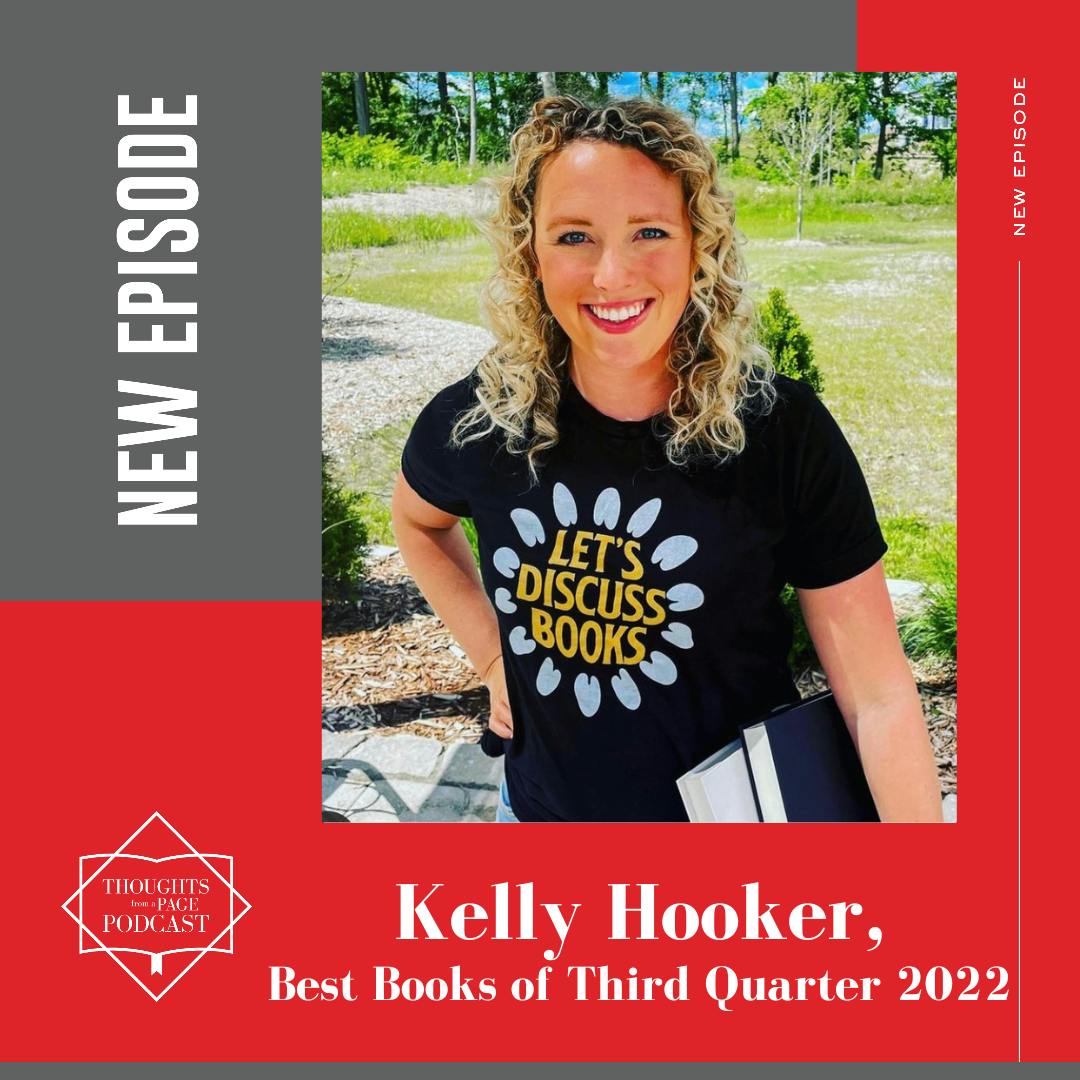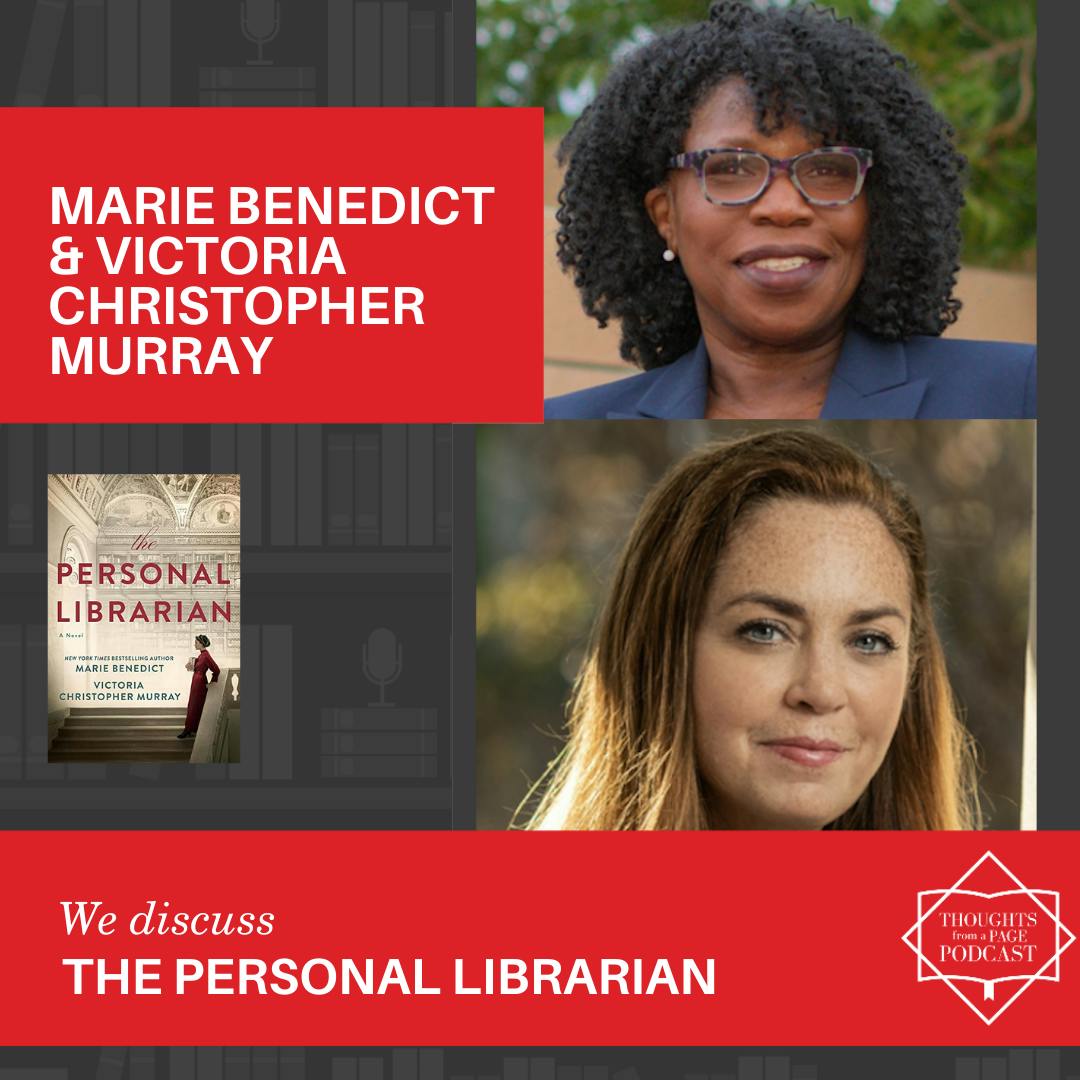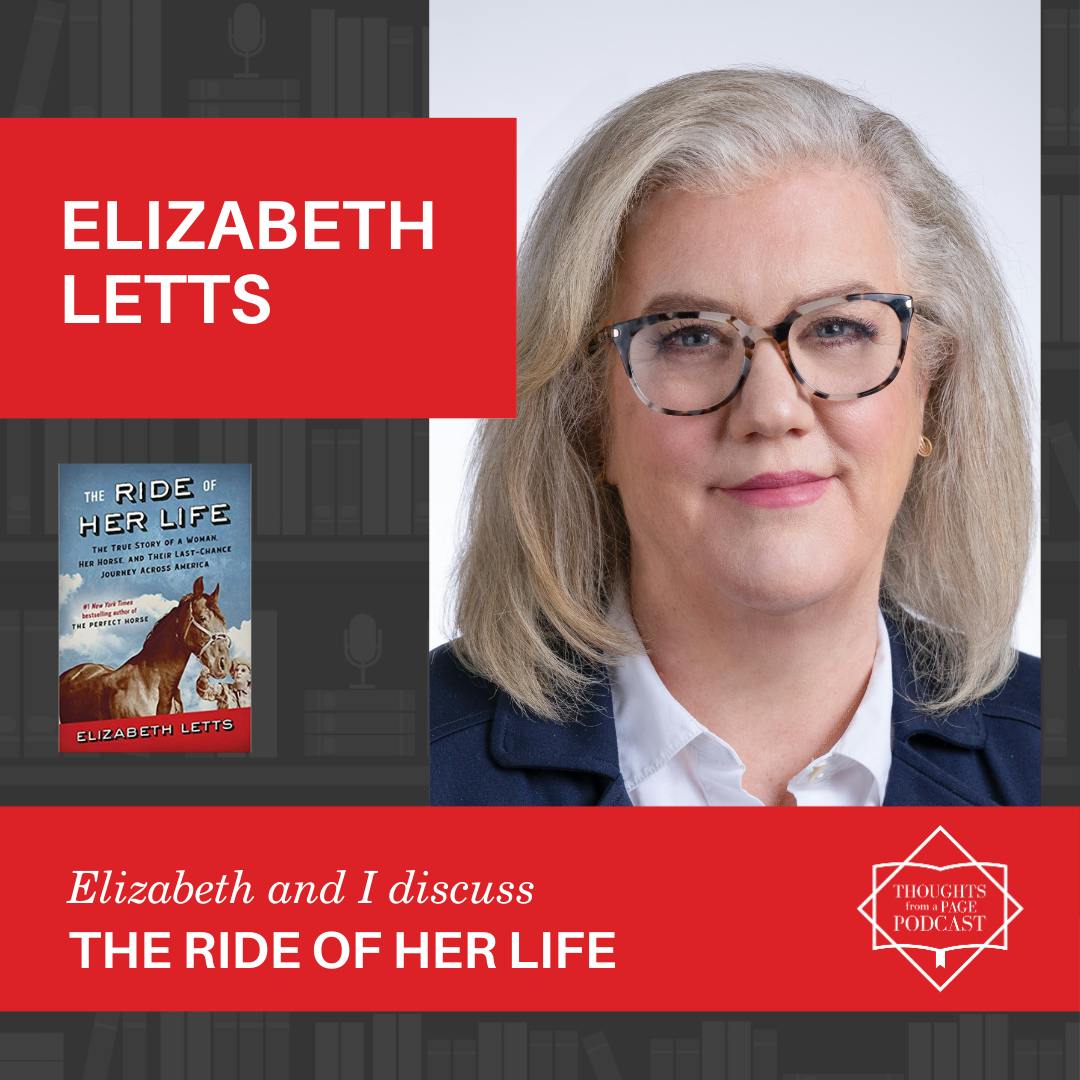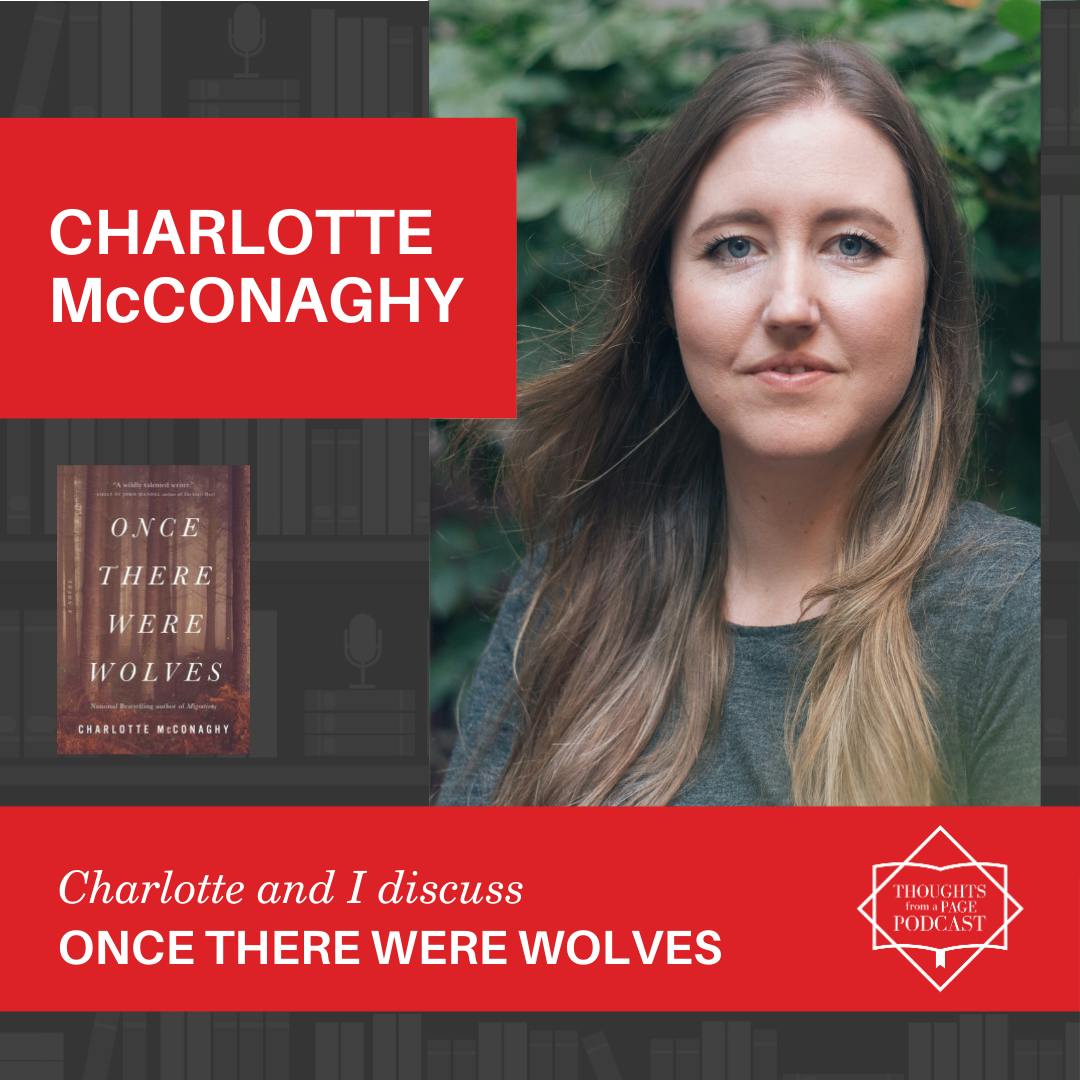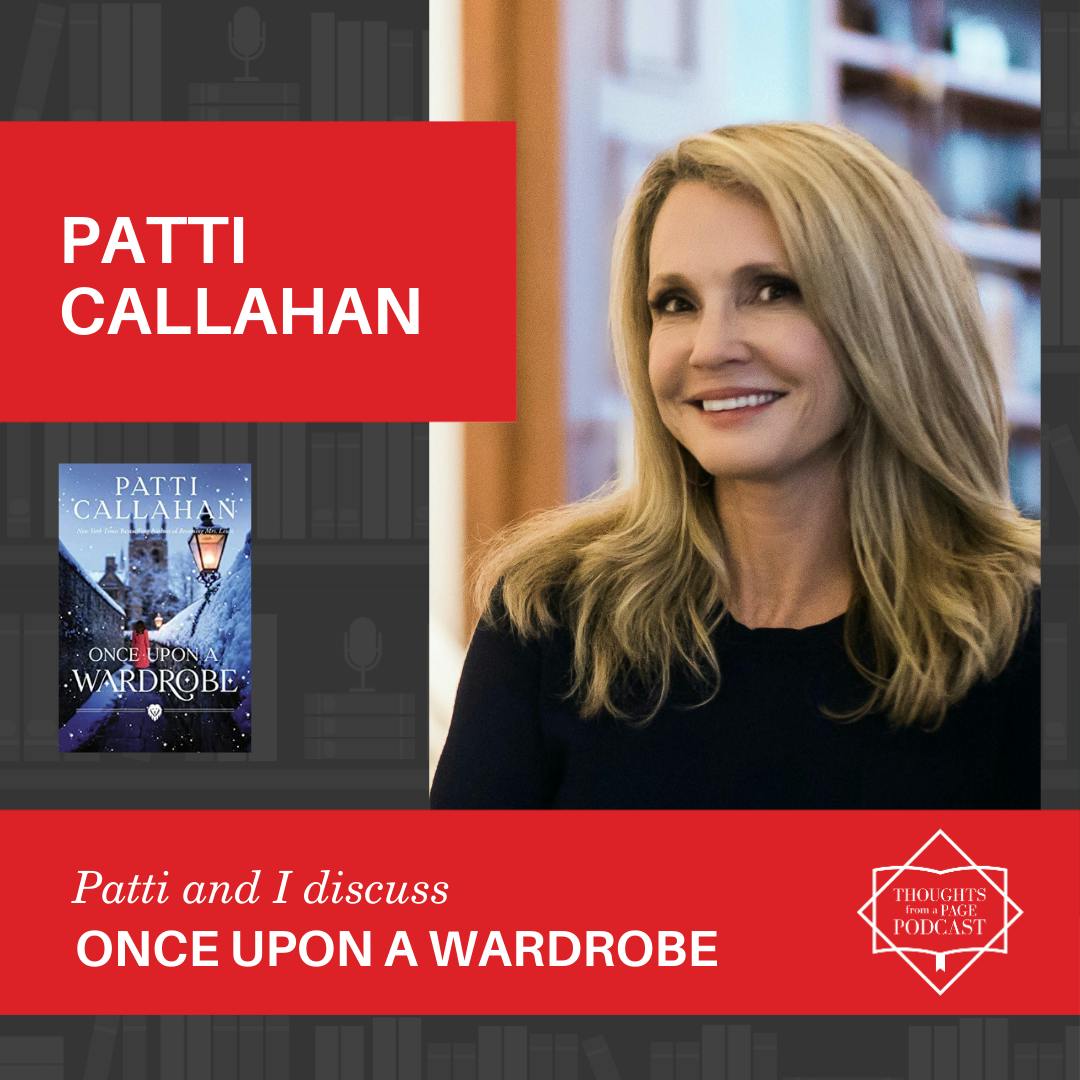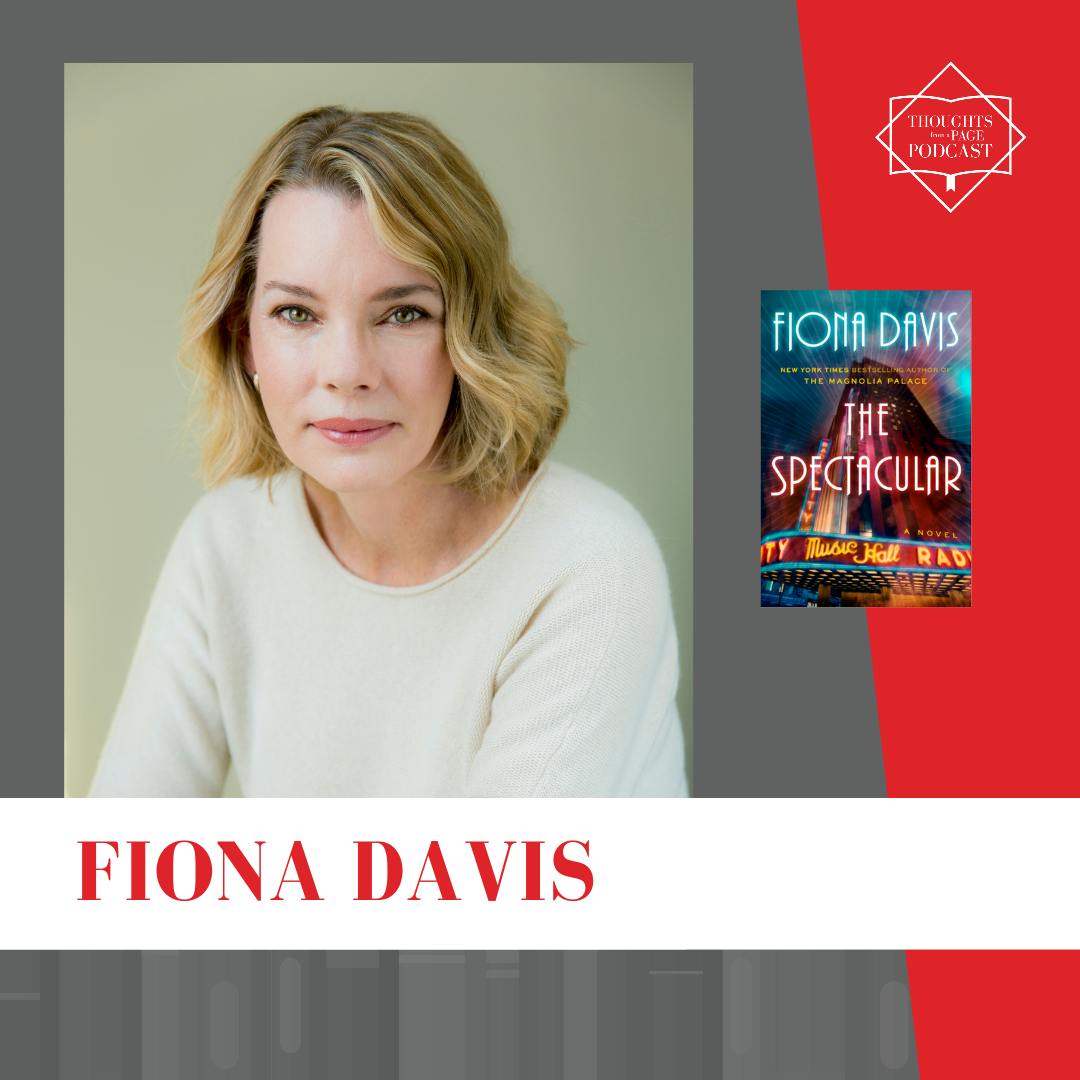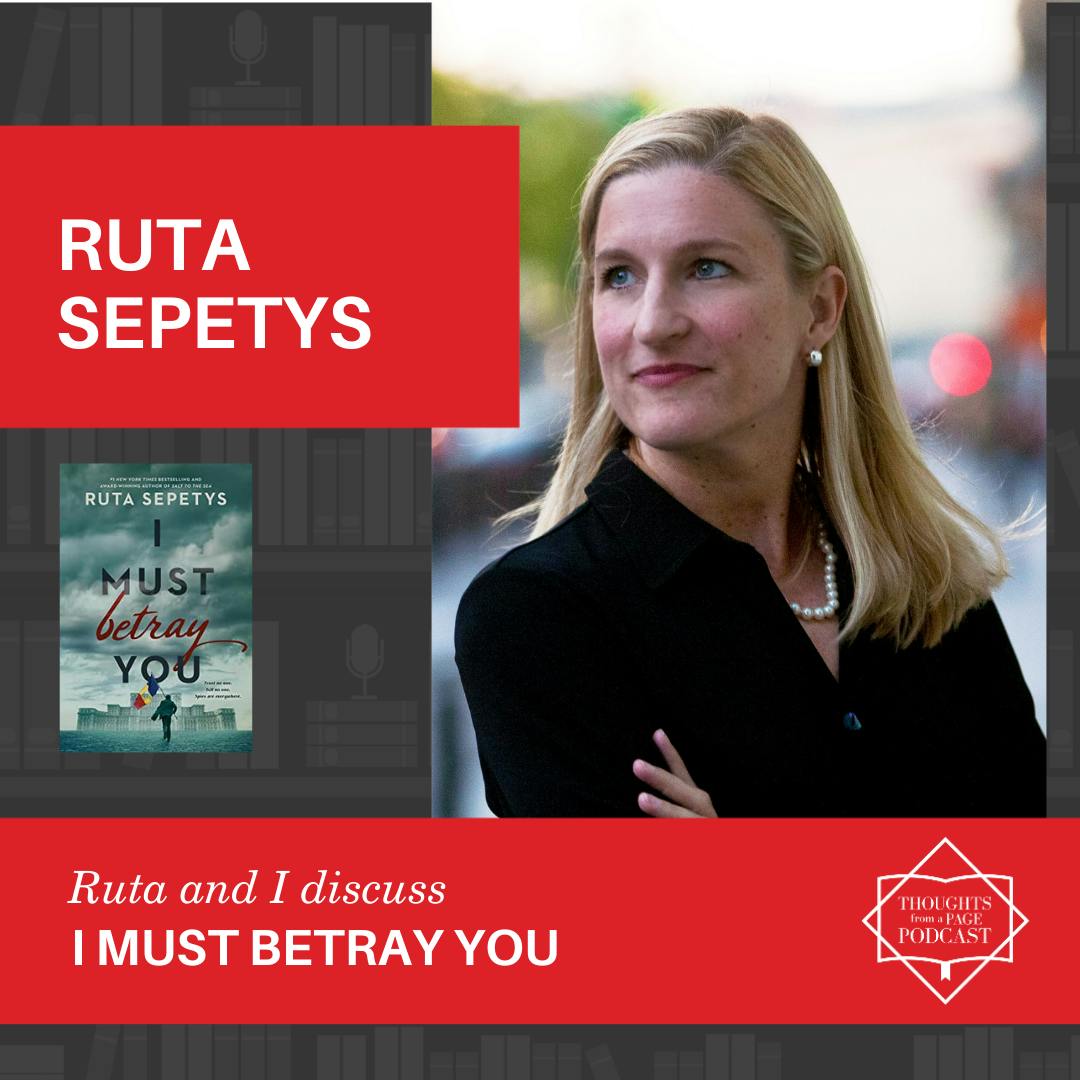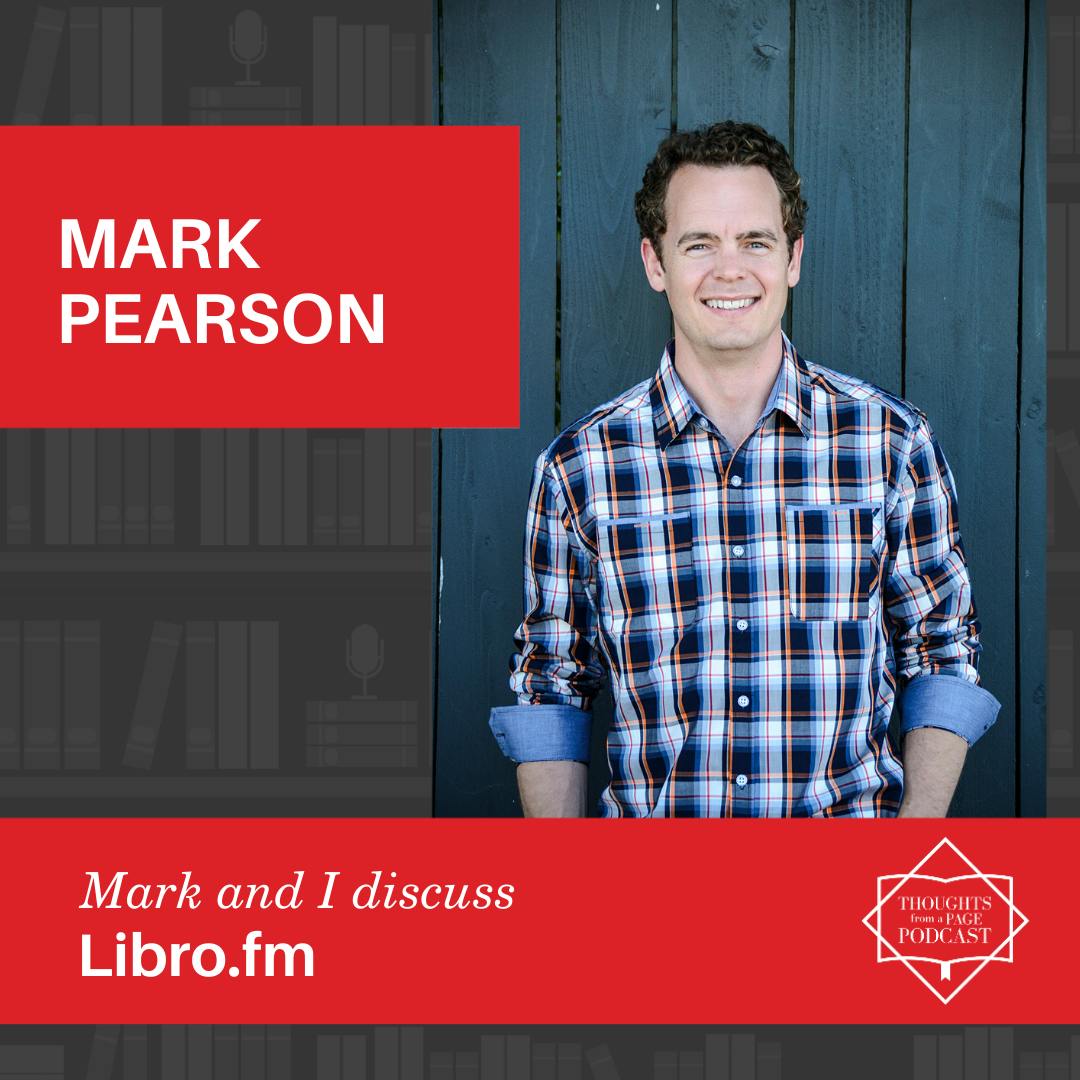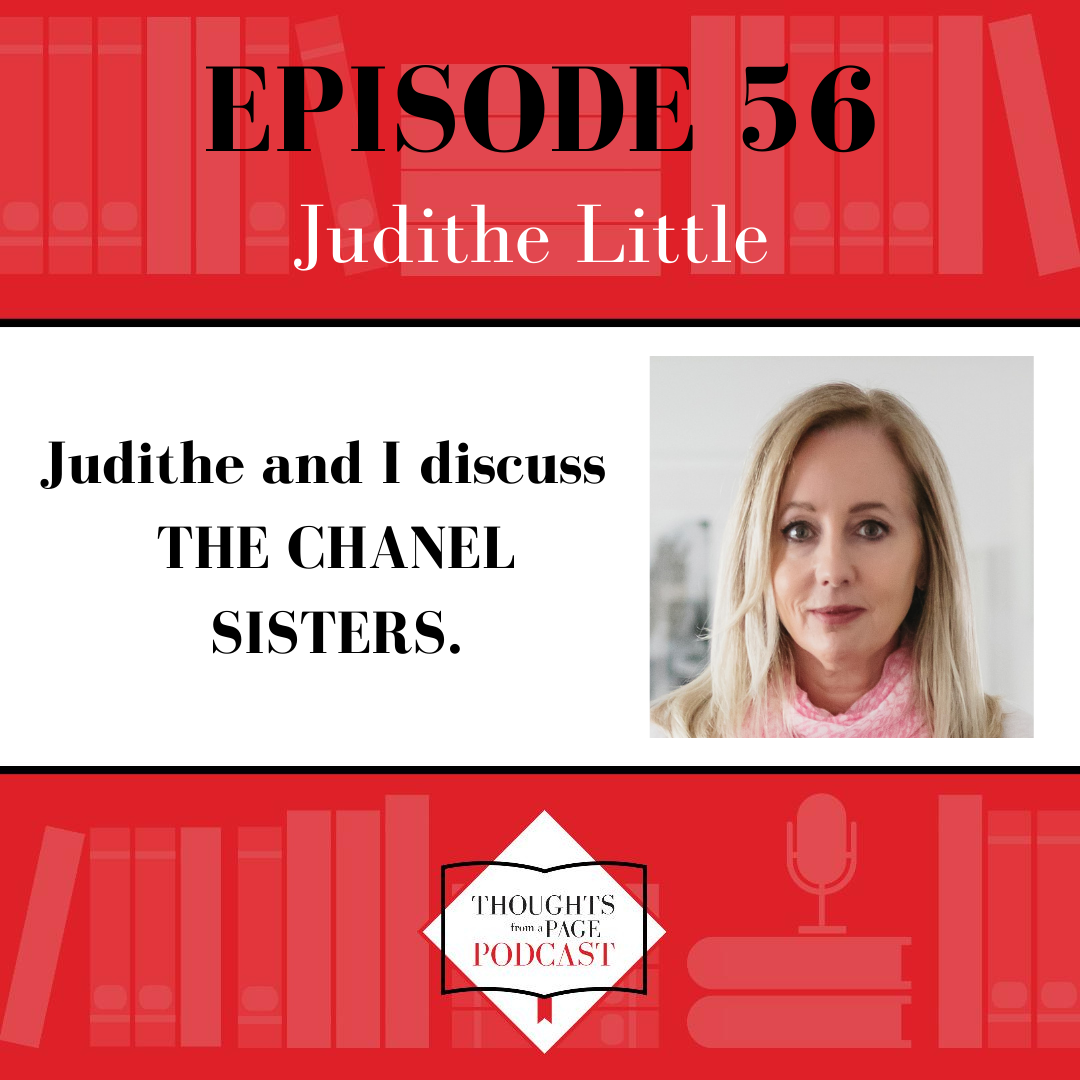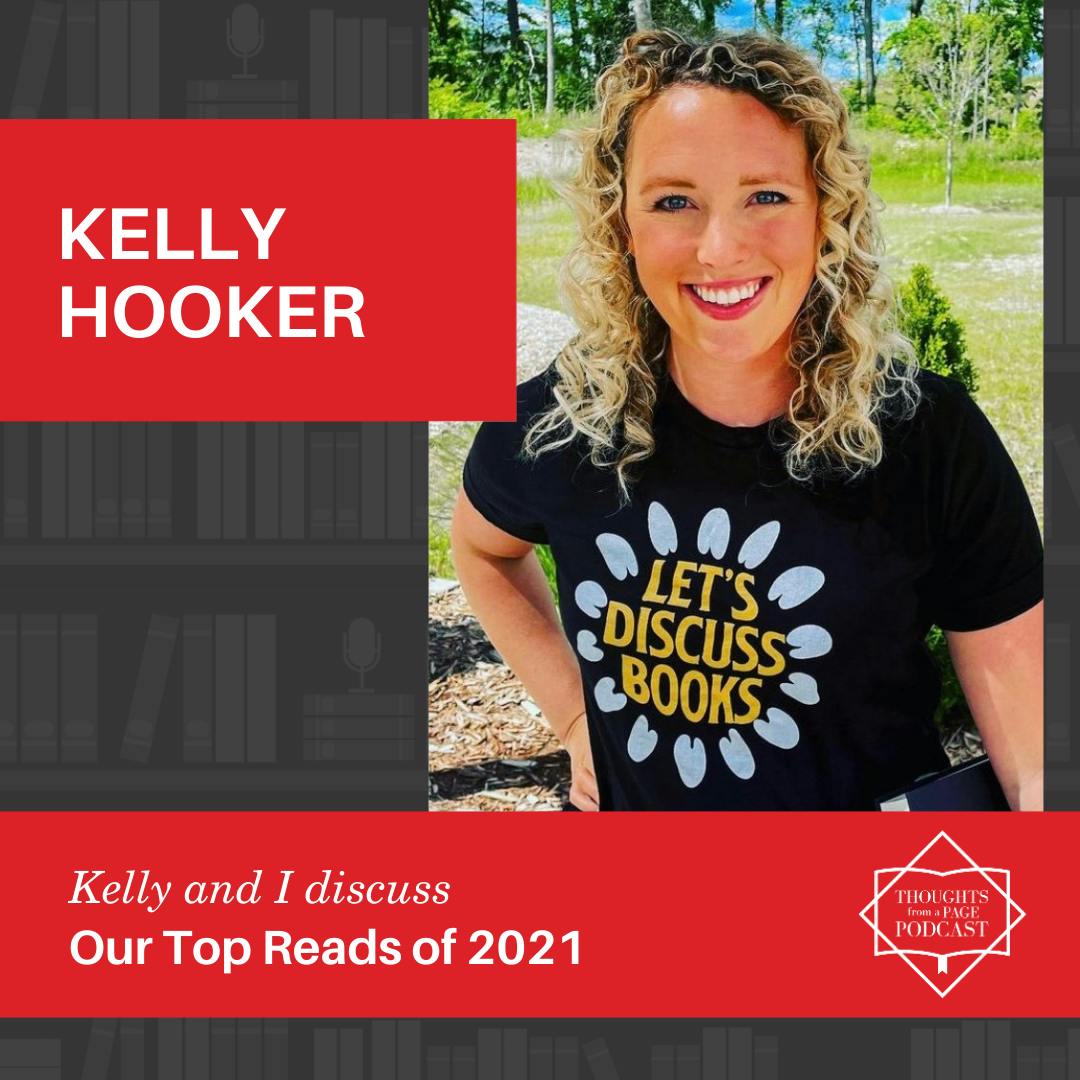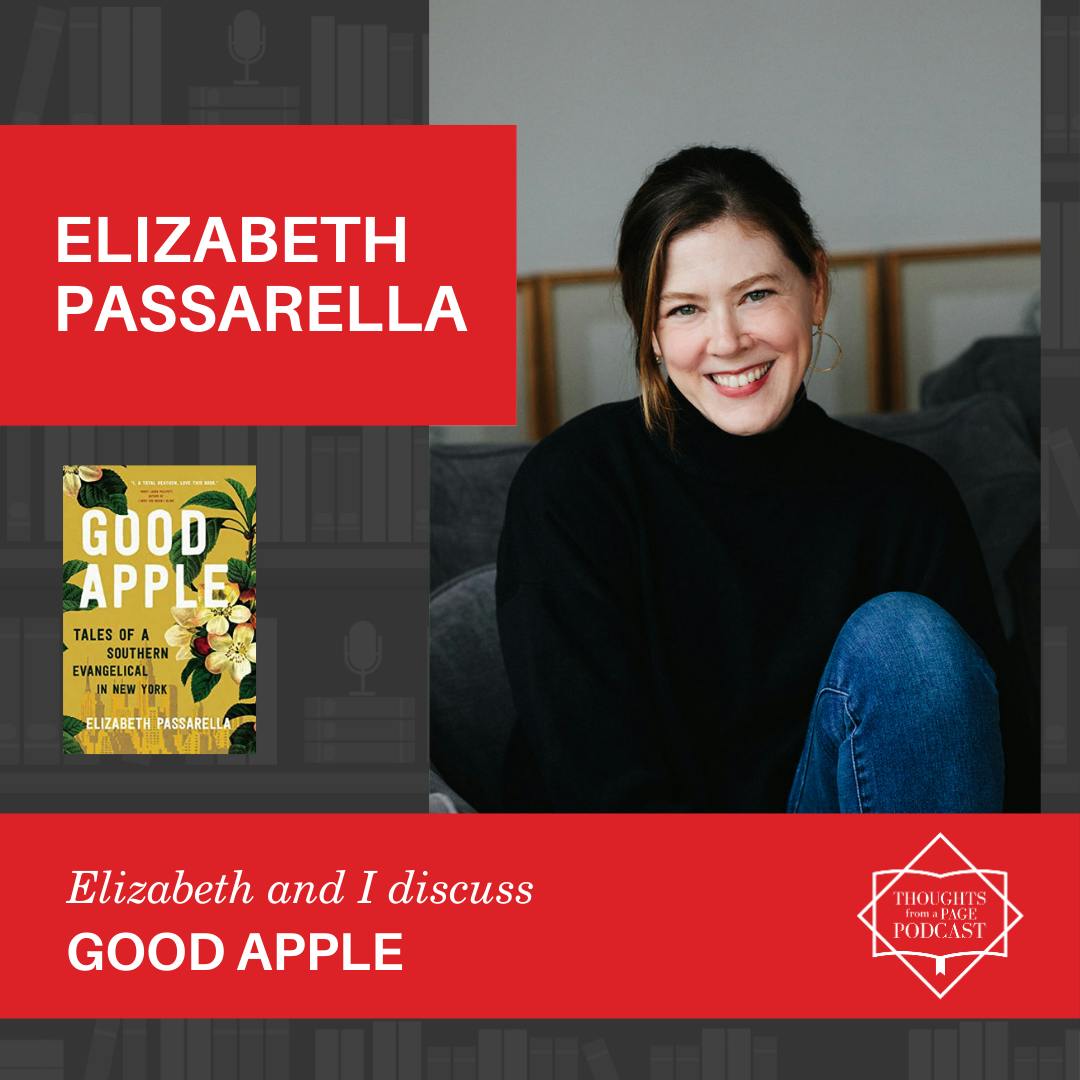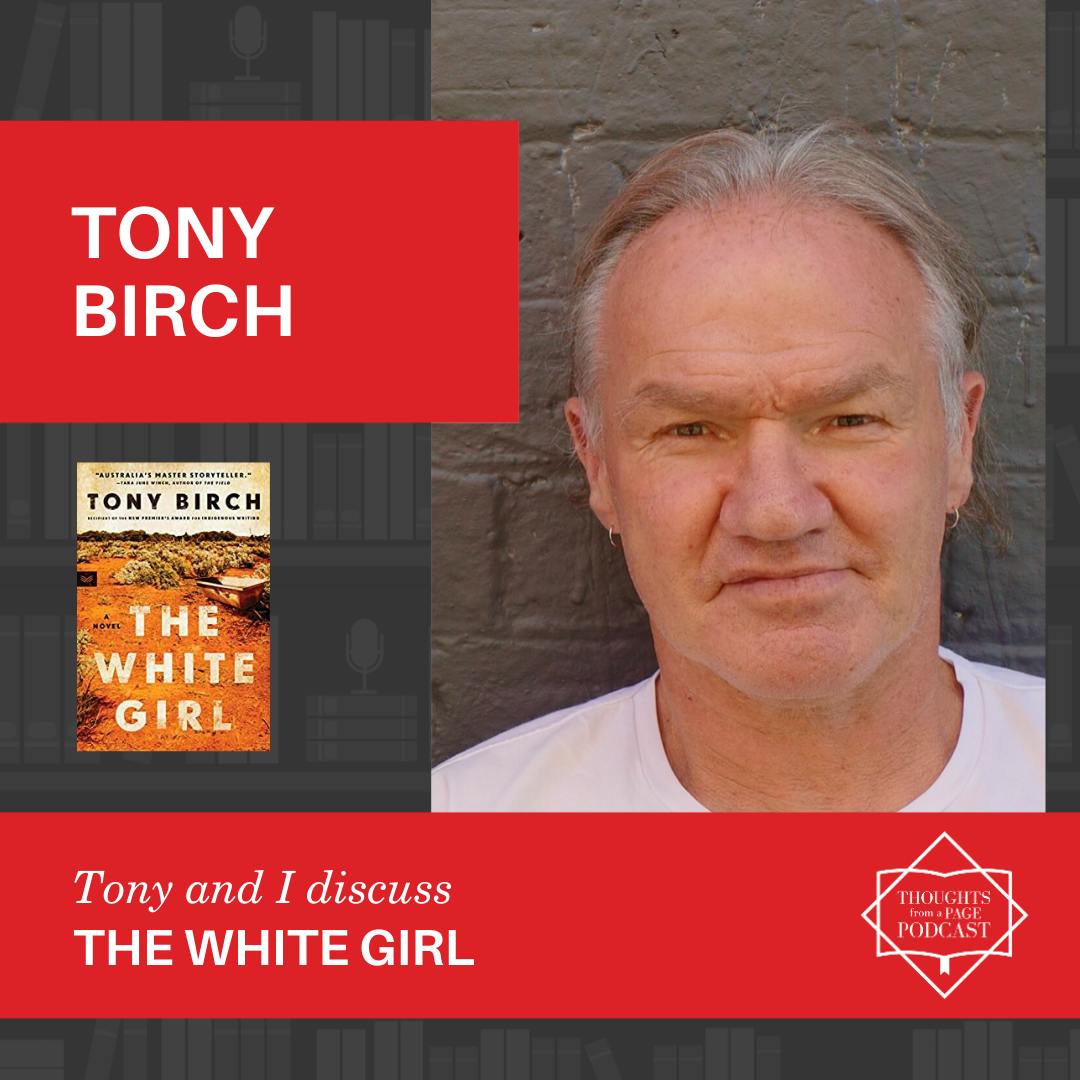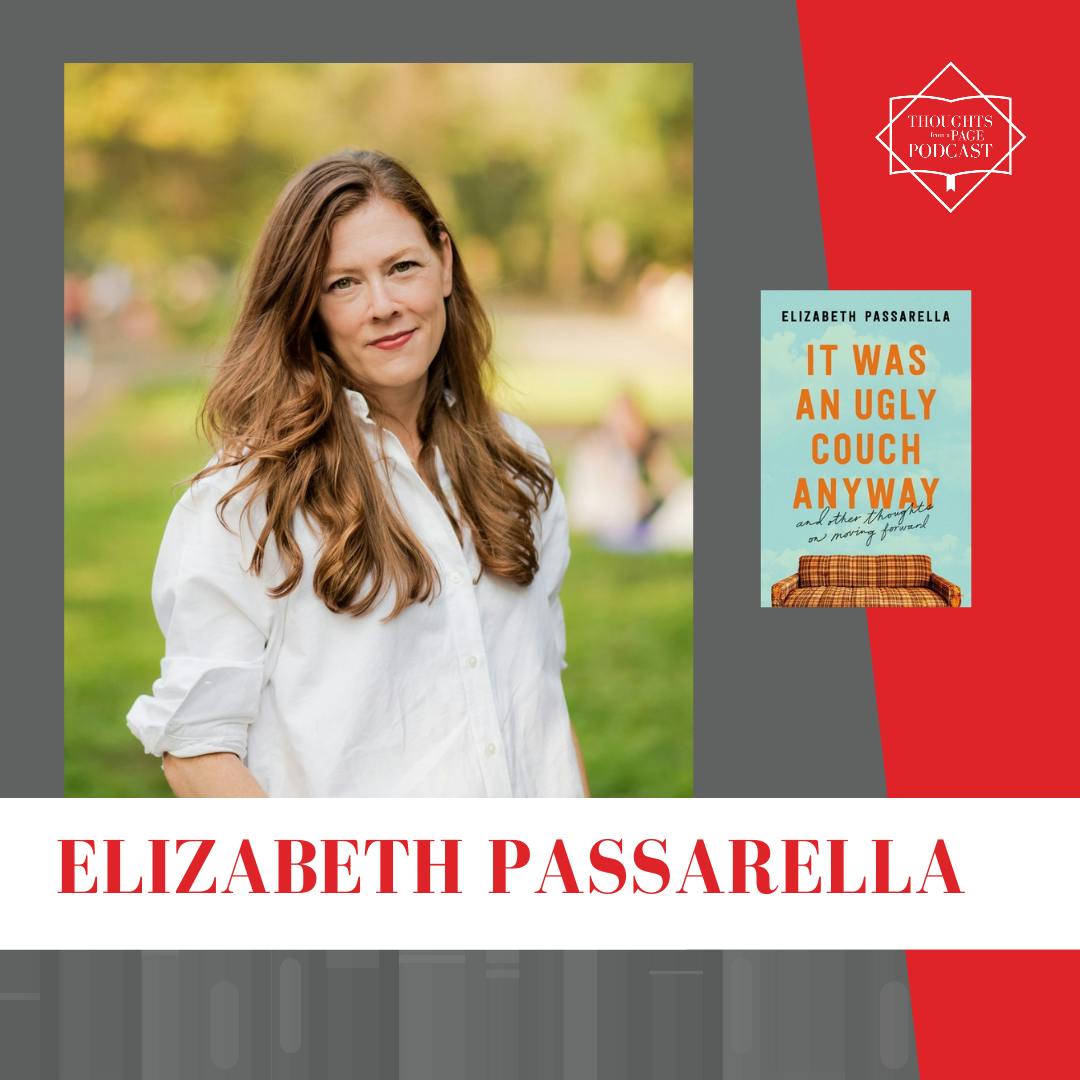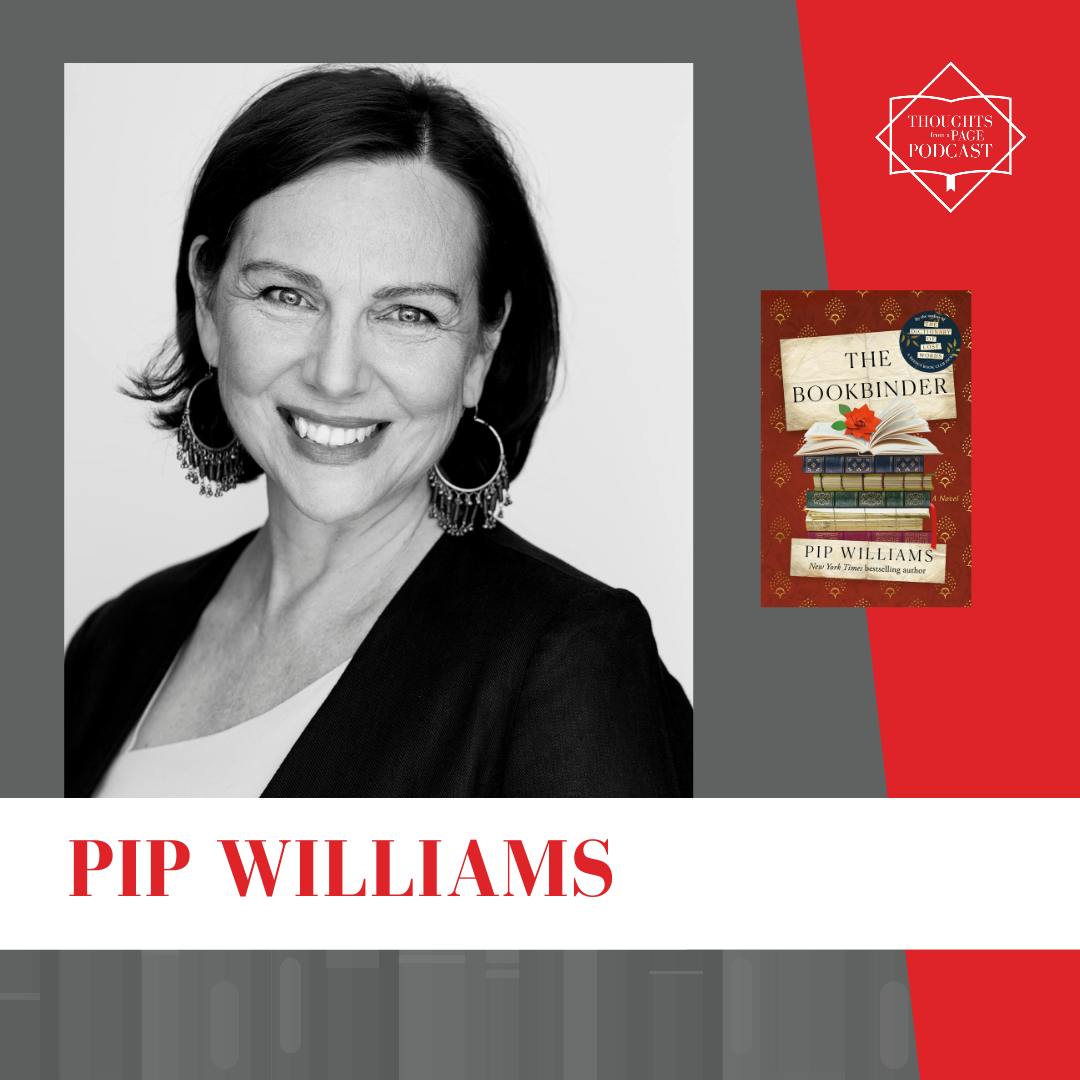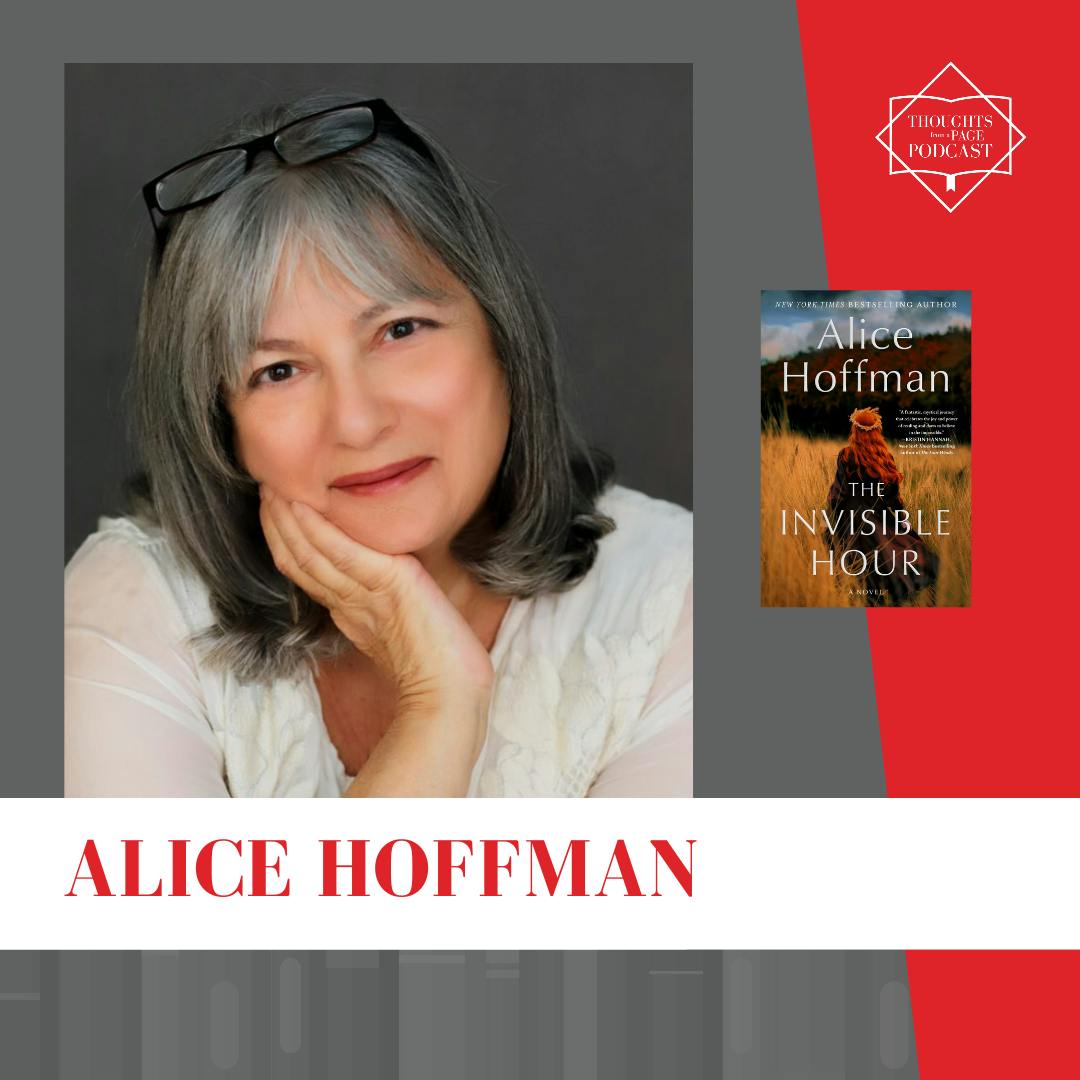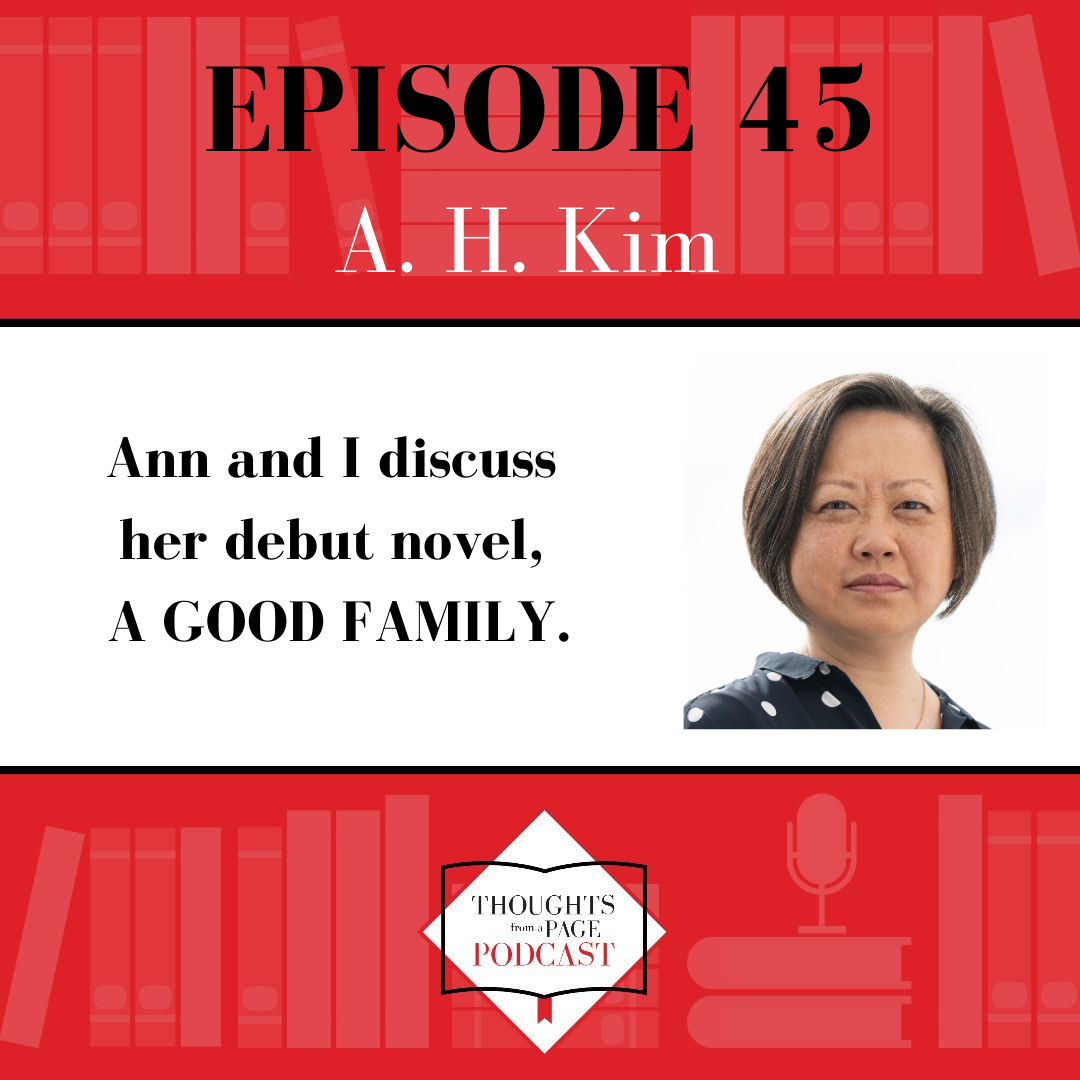
Ann discusses her debut novel A Good Family, her very personal inspiration for the book, joining the amazing debut author community on Facebook, trying to settle on the perfect title for the book, publishing during the pandemic, and much more.
Ann discusses her debut novel A Good Family, her very personal inspiration for the book, joining the amazing debut author community on Facebook, trying to settle on the perfect title for the book, publishing during the pandemic, and much more.
A Good Family can be purchased at Murder by the Book.
Ann’s 2 recommended reads are:
- A Door Between Us by Ehsaneh Sadr
- Remembrance by Rita Woods
SUMMARY KEYWORDS
book, authors, pandemic, people, debut, title, cover, swedish, themes, support, prison, cindy, false claims, women, story, publishers, events, called, readers, thought
SPEAKERS
Cindy Burnett, Ann Kim
Cindy Burnett 00:08
This is the Thoughts from a Page Podcast where I interview authors about their latest works. Listen to what inspired the storyline, how their covers and titles were chosen, their personal connection to the story and other fascinating tidbits about the author's themselves. My name is Cindy Burnett, and I love to talk about books. I can be found on Instagram and Pinterest @thoughtsfromapage, and if you have any comments about the podcast or feedback for me, I can be reached through my website thoughts from a page calm. Today I am interviewing A.H. Kim about her novel A Good Family. Ann was born in South Korea and immigrated to the United States as a young child. She is a graduate of Harvard College and Berkeley Law School and is a practicing attorney. She is the proud mother of two sons and lives in San Francisco with her husband. A Good Family is her first novel. Thank you so much for listening, and I hope you enjoy the show. Welcome, and how are you today?
Ann Kim 01:04
I am great. Thank you. How are you Cindy?
Cindy Burnett 01:06
I'm doing well, too. And I'm really looking forward to talking with you about A Good Family.
Ann Kim 01:11
Well, I'm excited to talk with you about A Good Family. It's been out 100 days now. And I always say it's kind of like a baby. Now it's the time where it starts to turn over and make real developments and changes.
Cindy Burnett 01:23
And this is your debut. Correct?
Ann Kim 01:25
It is.
Cindy Burnett 01:26
So what has that been like?
Ann Kim 01:28
Because it is a debut, I don't know what it's like to not debut in a pandemic. But I have to think that debuting in a non-pandemic year might be very different. We haven't been able to have in-store book events or to even have in-store signings. So those things have been disappointments. But I will say that the pandemic has also brought about a lot of Zoom meetings and opportunities to interact virtually. And that's been really fun for me, because then I get to see friends and family from across the country that might not otherwise have been able to come to my book events. So there's definitely a silver lining.
Cindy Burnett 02:04
I do think that's true. And you get introduced to readers and they get introduced to you that you would not normally have encountered if you were just going to bookstores, though I think bookstore events are the greatest thing ever. They are so much fun. I actually work part time in an independent bookstore. And that's my favorite part of the job. But in lieu of that, I do think that, like you said, the silver lining is the ability to contact people and be connected all over the world.
Ann Kim 02:28
Yes, before I debuted, I started to go to a lot of author events just to see what it was like to be an author and sort of imagine what it would be like to be on the other side of the of the signing table. And every time I would approach an author, it always felt like approaching a celebrity or something. There was like that energy and that electricity. So yeah, it's disappointing not to be on the other side of the table. But it's still fun to be able to share my book and to share my stories with people. And hopefully we'll get back to those type of events soon. And since you haven't been able to do any of them, you can do them then. Yeah, maybe.
Cindy Burnett 03:03
Well, why don't we talk a little bit about A Good Family, you want to tell me about it?
Ann Kim 03:07
Sure, A Good Family is sort of safely in the women's fiction or domestic thriller category. I think it's sort of defies categorization in some ways, because I thought only women would be interested in the story because the main characters are women. But I've had so many men come up to me and tell me they've read it that they really enjoyed it. So in some ways, I can't pigeonhole it. But it's about a beautiful pharmaceutical executive named Beth Lindstrom. She pleads guilty in a whistleblower lawsuit and self surrenders to Alderson, women's prison. And while she's in prison, she asks her husband's sister, her sister-in-law, who is a law librarian to come and visit her. And while she's visiting her, she says, I think someone in the family helped to set me up, and I need you to help me figure out who it is. And then the rest of the book is about that mystery.
Cindy Burnett 03:58
Well, one of the questions I had was how you came up with the name of the pharmaceutical company?
Ann Kim 04:03
Oh, that's so funny. No one's asked me that question before. So years ago, my sister and her family went to Sweden for a six month business engagement. And so I went to visit her because I thought, well, when when am I ever going to have a chance to stay in Sweden for free? So I started to teach myself Swedish using an online program. And I did it though my Swedish is terrible. But anyway, so "god halsa" in Swedish means good health. And so I thought that would be a good name, sort of an ironic name for the name of the pharmaceutical company.
Cindy Burnett 04:41
Well, I definitely thought it was an ironic name. And that's what made me wonder exactly what the source for it was. Well, that's interesting.
Ann Kim 04:47
I remember when I was growing up, there was this shampoo called halsa hair. And it was I think it was supposed to be Swedish and halsa means healthy or health.
Cindy Burnett 04:57
Well, my husband travels a lot with work; obviously, not really now, but in non-pandemic times, and he had a big case in Finland, maybe four or five years ago. And so I would call the hotel and they would talk and talk and talk and talk and talk in Finnish, and then do the same thing again in Swedish. And then it would be like, "please wait for the operator" in English. I was like, all of those words, only say please wait for the operator. So I was amazed at how long their words are.
Ann Kim 05:23
It's funny. Again, my Swedish is terrible. And I only took like three months of online classes, but I've taken German before, and I was surprised how many words sounded like German words. And a lot of English is actually Germanic; people think it's more like Romance languages, but it actually is Germanic. And so I would always just make up Swedish words, using English words, but just said with an accent.
Cindy Burnett 05:59
It always just kind of cracked me up because I thought, Wow, that's a lot of words for what they said in English, and maybe they were abbreviating their English translation, but I just thought, okay, I would have a hard time learning those languages if it was going to be that complicated to say three words. So how did you come up with this subject matter for this book?
Ann Kim 06:16
So the subject matter came to me through sort of sad circumstances in real life, my sister-in-law, my brother's sister, did plead guilty to a white collar crime, and she did self surrender to a women's prison in West Virginia. And I was very sort of supportive and active in my brother's life. At that time, like in the book, I went to drop her off at prison with my brother, because I didn't want him to have to drive back by himself. Like the character, I did support my brother and his children, my nieces, through her incarceration. And like the character, I did go visit her quite often in prison. And I wrote her a letter every single week. So a lot of those parts of the book are drawn from my own life, the nature of the crime, you know, all of the dysfunctional family dynamics, those are all completely made up. Around the same time that those things were happening to our family, "Orange is the New Black" had come out on Netflix, and people were, of course, riveted by the story. They were so intrigued by life behind the walls of a women's prison. And I felt like I had a front row seat to that, I knew what it was like to visit someone in prison, and to go into the vending room and buy snacks. And I was able to learn from my sister-in-law, what it's like to go shopping in prison, and what the food is like in prison. And so I took those elements, and I built a story around it.
Cindy Burnett 07:50
That's a very personal connection.
Ann Kim 07:53
Yeah, absolutely. So while the story comes from a sad place, things have all worked out. My sister-in-law is out of prison; my niece's are doing fine. And my sister-in-law is the biggest supporter of my writing and my book. So that's been really great as well.
Cindy Burnett 08:08
That was going to be my next question. If tyou had run the story by her and if she was okay with it. So good. Well, that's wonderful.
Ann Kim 08:15
Yeah, it's interesting, because even before I wrote this book, I wrote a YA book that has not been published and hasn't gotten picked up. That was my first effort at writing a book. And when you share your writing with someone, it's kind of nerve wracking. And so she was one of the first people that I shared my writing with. And she was a huge, huge supporter; she loved my first book, and she kept encouraging me to keep writing. So it's really been a wonderful side benefit, that we've been able to become so close through the writing process.
Cindy Burnett 08:49
That is wonderful. I really like that story. What do you hope readers take away from the book?
Ann Kim 08:55
I think it's not a book that has a huge significance in terms of meaning, I don't want it to be like a cultural statement or anything. I do want it to be a page turner, something that people enjoy reading something that helps to occupy their minds instead of the stuff that's going on around the world right now. But there are themes. I mean, there's definitely themes of #metoo. And I think that's a reflection of what it's like to be a woman in this working world that we live in. There's also themes of racial bias. A couple of the characters are Korean American, and they interact differently in the world than the white characters in the book. There's also themes about body image and how women are forced to kind of conform to certain types or are conscious of their weight. So there's lots of serious themes throughout it, but it wasn't intended to be like a heavy message book.
Cindy Burnett 09:50
Those are my favorite kind of books, though. Those that are entertaining, funny, page-turning but also you do learn a little bit or it makes you think like about the cultural differences. Or being a woman today with the body shaming. So I think it's great when those two things combined together.
Ann Kim 10:07
Yeah, those are my favorite kinds of books as well. As much as I read all sorts of books, everything from literary fiction, to nonfiction, to humor, but I will say my sweet spot is sort of that kind of women's fiction, commercial fiction, but that has some serious things in it.
Cindy Burnett 10:23
Depending on the book, yes, you know, I think there are some that are pretty light. And then there are others that are a lot more substantial. And I always kind of lean toward those substantial books. I'm always all about covers and titles. So I would love to hear a little bit about how your title came about.
Ann Kim 10:39
Oh, the title. Oh, my gosh, so much drama. So many lessons that you learn when you're a first time author. So the working title for the book was False Claims. And I know you are a lawyer, Cindy. So the False Claims Act is a federal statute. And it's the whistleblower statute. So it allows people to file a whistleblower claim against a company if the company has been defrauding the federal government. And so False Claims was fun for me as a title because it was both the legal name of the statute. And it was also a theme of the book, which is that people have all these kind of false claims, and you don't know what you believe in what you don't believe. But I think the publishers decided that that title sounded too legalistic, almost like a John Grisham novel. And so they encouraged me to come up with a different title. And for a while the working title was The Rules of Privilege, again, because there's a double meaning with privilege being a legal concept, as well as privilege being, you know, money and status. But that one also fell by the wayside. And then finally, the publishers themselves came up with the title, A Good Family. And when I heard it, I said, Yes, that's easily pronounceable. It's easily talked about, and I'm just tired of coming up with ideas. That sounds like to me.
Cindy Burnett 12:04
Yeah, you're like, I'll take it.
Ann Kim 12:06
Three's a charm.
Cindy Burnett 12:08
Exactly. That's my favorite number. So I always do feel like three really is the charm. So the cover, I just love it. Are you happy with that? Was that the initial one? How did all that come about? Because it seems like that's even more drama than the title usually.
Ann Kim 12:22
Yes, absolutely. Yes. After the first mock up, I was so discouraged because I didn't like the cover. And I felt like, oh, wow, this is really hard. The title keeps changing and the covers I don't like and it's the moment where you start to realize that this book that you've worked on, we call them our book babies, are suddenly in somebody else's hands. And they have control over the title and the cover and all those things. So anyway, I was initially very discouraged with my first mockup cover. And then my publishers were so receptive to my disappointment and said, Hey, let us come up with some other coverage, we want to give you a cover that you love. And so then they came up with this cover, which I do love. And so it was nice to know that my even though my book baby has gone out into the world, that there were people, midwives, who took care of it very well.
Cindy Burnett 13:15
I like that term. I have not really heard the midwives part of it before. I think it depends on the publisher, some publishers seem a lot more amenable to listening to the authors and how they're feeling about the cover, and others seem to feel like they've got it under control. But if I had spent all that time writing a book, and was so excited that it was being published, and then I didn't like the cover, I think it would just be so disappointing, because truly every time you looked at it, you'd be like, Ah, yeah.
Ann Kim 13:43
I mean, you can see authors all over the place, you know, holding their books up. It's called, I guess some people call it book face, right? And so you're constantly being shown with your book cover. So I can't imagine what it would be like not loving your book cover. But I do. I love it. I think it's gorgeous. And I think it fits the theme of the book very well.
Cindy Burnett 14:02
I agree completely. I think it is absolutely stunning. It's very eye catching. It's different than any other cover, which is nice, because I think you go through trends, and you'll end up seeing kind of the same type of thing in the same period of time. And so it's very nice, because it doesn't look like anybody else's book, but it's also really, I think, represents your book. Well,
Ann Kim 14:20
Thank you. Thank you.
Cindy Burnett 14:22
I think it's beautiful. Now you've made me think about authors holding up their books, and if you hated it, you'd be sticking out your tongue or grimacing, here's my cover.
Ann Kim 14:30
So funny, it's like a baby- I don't want to sound mean. But you know, sometimes you look at a baby and you're like, Huh, this baby, but to the mother, their baby is gorgeous, right? It's just the cutest thing on earth. So I don't know. I actually don't know anybody who doesn't love their book cover. I think you do grow to love your book, even though other people might like it.
Cindy Burnett 14:53
I have a friend that doesn't still totally love the title of her book. She had in mind a totally different title, and they went round and round. And I think still she's a little bitter that it did not go the way that she had in mind just because she really was attached to her title. So it's just kind of funny. I think she's fine with the new one. But every once in a while she's still like, I really wish they had gone with my idea. I think you get used to your book cover, and you probably do grow to love it. But I think every once in a while somebody is like, Hmm, I really wish they had listened to me a little more.
Ann Kim 15:22
Well, I must admit that when people say, oh, False Claims, that's a great title. I do have this little thrill of like, Yeah, I know, right?
Cindy Burnett 15:31
I knew it should have been that one. Well, how long did it take you to write the book?
Ann Kim 15:37
I think it took a little bit over a year to write the book. But then, after that period of time, I think I started querying agents, which is the first step to becoming a published author. And during the process of querying, I think it took me almost a year for that as well. I was constantly refining the book to try to make it better, or to respond to what little bits of feedback I got from readers or from agents. So it was a long process. And I would say from starting to write the book to actually seeing it in bookstores was five years.
Cindy Burnett 16:12
Wow. I'm always amazed. And I think that's totally normal that amount of time, but it just seems like such a long time from start to finish. And then finally hold the book in your hand. Did it get pushed back because of the pandemic at all, or they had just set it for summer? Or was that just the way the timing worked?
Ann Kim 16:30
So the book did get pushed back, I would say about six months. And I think it I don't know, I feel mixed about that. It would have been pre-pandemic if it had come out on its original release date. But I also feel like releasing right before the pandemic was kind of bad because people bookstores weren't prepared for online events. And so everything got canceled. And then you didn't even get the benefit of the online events. So by the time my book released, I think bookstores and other venues like yours had been established to allow authors to reach audiences, even without the in person events.
Cindy Burnett 17:08
I think that's true. And I do think the people that really got the worst part of it were the books that were coming out and March and April, even late February, because exactly what you're describing, nobody was ready to pivot because first they didn't think it was going to last as long as it has, and second, it just takes a little while to pick up something new. And so now, all these stores are in rhythms, and they understand how to use all these different platforms and reach people and their followers have been growing as they keep doing these things. So definitely, your timing was better than if it had come out in late February, March, even April.
Ann Kim 17:41
Yeah, exactly. I'm just grateful for the opportunity to be able to reach people in whatever way I can.
Cindy Burnett 17:47
There's such a strong network of debut authors, too. That was something I wasn't really as familiar with, until I started doing this podcast. And I just think that's fabulous. It's a great support network it seems like.
Ann Kim 18:00
Yeah, as I was saying before, I've been going to author events and book readings for a couple of years now just as I prepare for being an author. And so I went to a book reading by Angie Kim, who wrote this book called Miracle Creek, which is fabulous, and everyone should read it. And in addition to having the same last name, we have the same sort of heritage. And we're both lawyers. And so we had a lot in common. And so I reached out to her and asked if I could pick her brain about being a debut author. And one of the pieces of advice that she gave me, which was invaluable, was to join this private Facebook group for debut authors. So she was part of the 2019 debut authors group. And she found that group very supportive and helpful. And so she encouraged me to join the 2020 Group, which I did. And I would say it's probably one of the top three benefits of debuting this year was that group. And yeah, so it's a private Facebook group where we kind of cheer each other on. And so as each author debuts we retweet their tweets or we like their posts, we hopefully buy their books, review the books, but it's also about the downtime. So when we get a bad review from Kirkus, or we get no review from Kirkus, we can also sort of commiserate and support one another. So it's kind of like a online support group. And it's been fabulous. And I wouldn't have given up that experience for the world.
Cindy Burnett 19:29
And that's how you know Que Mai, right?.
Ann Kim 19:32
Exactly. Yeah. I mean, her book is so gorgeous, and getting acclaim everywhere. And she's also a wonderful supporter of her fellow authors.
Cindy Burnett 19:40
I think she's the one that connected us up. So I had asked her because I read her book early on, I think, end of 2019. And she and I just became friends after I'd reviewed it. And we just started talking regularly. She was telling me about this debut group because it wasn't something I was familiar with. And so she said, Well, do you want me to reach out to some of the other authors that I've met there. And I was like, Sure. So that's neat, that's wonderful to have that kind of network.
Ann Kim 20:04
You would think that authors might be competitive with one another, because somebody's only got a certain book budget, so they're going to buy your book, or they're going to buy my book. But the reality is that readers read voraciously. And so it's not like they're gonna choose my book or your book, they're gonna buy all the books. And I think just, we all have the common interest of supporting readers and supporting writers. And it's not a competitive group at all. As I said, it's it's such a supportive group, because I think no one else knows what it feels like to have your book baby out in the world for the first time. And no one else especially knows what it's like to have a book coming out during a pandemic. So it's such a wonderful way to connect and to support one another.
Cindy Burnett 20:49
And just to maybe have some advice about things you might not even think about that afterwards, you would say, I wish I'd known that ahead of time. And so you have people who can actually tell you some of those things so that you're prepared and ready to go.
Ann Kim 21:02
Absolutely. One of the other sort of sad experiences that I've had in my life, but that I wouldn't give up, is I'm a breast cancer survivor. And so I joined a support group for breast cancer survivors many, many years ago, and ended up becoming one of the leaders of the group. But it's so nice to have someone who has gone through an experience before you to help both support you and recognize your feelings as you're going through them. But also, it could be that sage advisor who can say you'll get through this, or this is what I did.
Cindy Burnett 21:35
Congratulations on being a cancer survivor. I know that can be a long and rough road, one of my best friends from college had breast cancer four or five years ago. And as I was working through some of that with her trying to help her out, I know certain groups like you're talking about were immense support for her, also helped her know what would happen when, what she needed to do with regard to like shaving her head, and kind of what to expect in the future. It was all such a source of comfort for her.
Ann Kim 22:03
Yeah, when something is brand new, whether it's debuting in a pandemic or going through chemotherapy, it feels very, very scary. And just to have somebody say, Hey, this is what I experienced, or this is how I got through it gives you hope that okay, there's a there's a light at the end of the tunnel.
Cindy Burnett 22:21
I agree completely. Well talking about other debut authors and other authors generally, what have you read lately that you really liked?
Ann Kim 22:28
I think I introduced you to her. Her name is Ehsaneh Sadr. And she wrote this beautiful book called A Door Between Us. And it's the story of the green wave in Iran. But it's also sort of a star-crossed lovers type story. And I just finished it and loved it. And I felt like I learned so much about a different culture that I wasn't particularly familiar with. So that's one book that I just finished. And I just started a new book called Remembrance by Rita Woods. And she is also part of the 2020 debuts group. And it seems to be I've just started it, it seems to be sort of a multi-layered story that has historical elements, as well as multicultural elements as well. So that's it so far, all I know is that it's got beautiful writing.
Cindy Burnett 23:17
I've seen both of those a lot of places. And yes, you did introduce me to Ehsaneh and that book is beautiful. And I just really enjoyed learning so much about the green wave. And that time in Iranian history, which I was not as familiar with as earlier periods, like the revolution and things like that.
Ann Kim 23:34
One of the things that I like to do is when I read a book, I like to sort of immerse myself a little bit in the culture. And so I started to cook Persian food when I was reading the book, and now I'm just an addict. I keep looking at Persian food recipes, because it's so delicious.
Cindy Burnett 23:51
That's very cool. I thought you were going to say you Google. That's what I usually do. I ended up Googling all these things, just to kind of see what it looked like or what was happening. But you take it many steps past that. You're actually doing food and all that. That's great.
Ann Kim 24:04
Yeah, I made this eggplant dish that's kind of like eggplants to that you serve over rice. And it's delicious.
Cindy Burnett 24:11
Well, I do think they are known for their food, a lot of good recipes and lots of yummy types of foods. So that's so fun.
Ann Kim 24:19
I know. I always joke that if you bring food out, I'll show up anyway.
Cindy Burnett 24:24
Well, I have had so much fun talking with you today. And I'm really glad you came on the Thoughts from a Page Podcast. And I appreciate your time.
Ann Kim 24:31
Thank you so much, Cindy. Once again, I really appreciate the opportunity to be introduced to other readers, and I hope people take the time to read A Good Family.
Cindy Burnett 24:40
I hope so too. And they're going to love it if they do. So. Thanks again.
Ann Kim 24:45
Thank you Have a great day.
Cindy Burnett 24:47
Thank you so much for listening to my podcast. If you liked this episode, and I hope you did, please follow me on Instagram and Pinterest @thoughtsfromapage. Tell all of your friends about the podcast and rate it wherever you listen to your podcasts. I would greatly appreciate it. A Good Family can be purchased at Murder By The Book where I work part time, and the link is in the show notes. Thanks to KP Regan for the sound editing, and I hope to see you next time.























